Here is a button where you can subscribe to this newsletter now, if you have not previously done so. I do hope that you enjoy it.
There is a town, about 24 miles outside of my hometown of Mattoon, Illinois, called Arthur. Arthur is tiny, with about 2,400 residents, but that’s not what Arthur is best known for. Arthur is best known for its Amish. There are 4,500 people in the Amish community that surrounds Arthur, the largest and oldest Amish settlement in the state of Illinois, established all the way back in 1865. When there are 4,500 Amish people living within 25 miles of your rural hometown, you cannot miss them. My first near-miss car accident happened when I came firing around a blind curve in a 1986 Ford Escort—perhaps “firing” is not the best verb to describe what that car was doing; the steering wheel on that car would start vibrating any time it pushed 50—and discovered I was barreling down on an Amish horse and buggy in the middle of the road. I slammed on the brakes and nearly flipped my car into a ditch. Once I recovered my bearings, I passed the buggy on the left and looked into the carriage. The old man guiding it didn’t even glance in my direction. It was as if teenagers were always nearly killing themselves around him.
You’d run into the Amish regularly; I saw them most when I was with my dad at the Rural King. There was a kid in my class named Jason who had been born with the Amish community but had left with his mother and decamped to Mattoon. I never knew the circumstances around their exodus, but I liked Dean. One time Dean, some other friends and I were all out at Peterson Park before one of our baseball games, when we came across an Amish family. They recognized Dean, and we struck up a conversation. There was a son there, about our age. I don’t remember the kid’s name, but he was polite, funny and friendly. I mostly was concerned with how hot he looked in his Amish clothing—it was 90 degrees outside, and here he was with long pants, suspenders, a wool jacket and a hat—but he didn’t seem fazed by it. He didn’t seem fazed by anything. He was just a normal kid, just like me; he just spent a lot more of his time churning butter than I did. (I was in fact not churning any butter at all.)
I thought this kid could become a friend of mine, and he must have had the same thought, because he asked me and Dean what we were doing after our game. I told him that we were probably just all going to go watch TV, maybe play some Nintendo, and Dean started laughing.
“Yes, we’re going to watch television,” Dean said, not meanly, but plainly amused. “Then were going to play a video game.” He kept making air quotes around each of these things were going to do, these things that our new Amish friend never would be able to, as if we were talking to him in some obscure, or alien, language. We were going to ride a bike. Later we might eat processed foods. If we got a chance, we might use some electricity. We would do all this while wearing shorts.
The kid gave us a lopsided smile and waved goodbye; his father told him it was time to go back to the farm. I don’t know if I ever saw him again. To be entirely honest, all the Amish kids always kinda looked the same to me.
I remember being back at home that night, in bed, staring at the ceiling, thinking about how bizarre it was. The Amish were so confusing. I knew they had a belief system, and a tradition, and I respected it. My inability to understand something doesn’t mean there’s anything wrong with it.
But, you know, why remain stuck in the past if you don’t have to be? There’s electricity all around us. It allows you to do incredible things. Sure, you can live without it. But why? It’s here, after all. It’s yours to use, if you want it.
***************
After a period of sustained frustration that the vaccine rollout had started out so slow and disjointed—a period of time that, I remind, no one imagined there could possibly be vaccines by a year ago—there are now vaccines everywhere. Here in Georgia, everyone 16 and over is now eligible for the vaccine, and most states have either already reached that point or are about to. (Georgia wants you to get vaccinated. It just doesn’t want you to vote.) The United States, after a disastrous initial response to Covid-19, has become a world leader in vaccination production and distribution, to the point that now the Biden administration is receiving criticism for not shipping its excess supply to countries in more desperate need of it. (I am going to take this criticism, as justified as it is, as progress.) That threshold, where the problem shifts from “not enough vaccines” to “not enough people wanting to be vaccinated,” appears to be near.
This is an incredible moment. This is, in fact, what we’ve all been waiting for. All the pain of the last year, all the sacrifices, all the loss, all the damage that’s going to take years or even decades to unspool, it has been overwhelming. Life has been upended and scrambled in every possible way, and it has unearthed many unpleasant truths; we have now seen our nation, and our neighbors, and ourselves, at their absolute worst. This is the period of time we’re going to be talking about the rest of our lives, a time we made it through, a time when everything rattled so violently that it almost went careening out of control all together. When I am old, my grandchildren will look at strange subconscious habits I’ve developed—washing my hands too long, standing a few feet farther away from strangers than is necessary, always being vaguely concerned that everything in my life that I value could vanish, or at least freeze in place, at any moment—and they will whisper, as way of explanation, he lived through the pandemic, the same way I whispered, Grandma lived through the Depression, it just changed people. And they’ll be right.
But, amazingly, magically, we now have a way out. Or, more accurately, a portal through which we can finally begin to move forward. There is an incredible scientific breakthrough that will allow us to rejoin the world, to have the revolutionary, mind-blowing experience of returning to what our lives were just 13 months ago, to what our lives had always been. Those lives weren’t perfect, far from it; I remember people mostly complaining about them at the time, now that I look back about it. But those lives seem glorious now. I will receive my second Moderna shot on April 12, which marks me as “fully vaccinated” on roughly April 26. I will celebrate by embracing and celebrating the mundane: A cold beer at a hole-in-the-wall bar, a sandwich eaten in air conditioning, a walk through a supermarket that doesn’t feel like a war zone, a sit-down with an old friend I haven’t seen in which we will both be so excited that we will talk far too quickly and far too loudly.
This is what getting a vaccine allows: It allows you to start the long slow crawl back to whatever the next normal is. It’s not a magic bullet. But it is a start.
But the last year has done a number on us. And I worry it has locked some of us in a defensive crouch that’ll last far longer than this pandemic. It may have made some of us constitutionally incapable of accepting good news. It may keep us stuck in the past in a way that hurts us.
This week, I ran into a fellow parent I hadn’t seen in a while. I’m fond of them; they’re a nice person who has raised likable, well-adjusted children. This person had just received their first shot, like I had, and we were discussing our respective timelines, the sort of conversation you have with people in March 2021 that would have sounded nonsensical and vaguely totalitarian in March of any year previous to this one. (“I talked to an friendly but distant acquaintance about our vaccine timelines,” sounds like something from a zombie novel.) I mentioned that my parents had recently completed their two-week period and that my dad had celebrated by going to the Big Ten Tournament in Indianapolis to watch his beloved Illinois basketball team.
“I’m so excited for him and my mom,” I said. “They’ve been stuck in that house with their son worried about them for a year. Now they’re free. I want them to go nuts. Travel, eat in poorly ventilated places, go jump out of planes, you know? They’ve earned it.”
It’s difficult to tell when someone’s frowning when they’re wearing a mask, but I could tell that my fellow parent had started to frown. I recognize this frown from the pandemic. It’s that moment when you realize the person you’re talking to has a different view on the pandemic than you do. I’ve made this frown a few times myself in this pandemic, when you discover that person you thought you knew and understood thinks it’s ridiculous that “they” want you to wear masks everywhere all of a sudden. (This is otherwise known as the “we oughta just let it run loose and reach herd immunity faster” face.) I realized that I was now the one causing that face. I could see my friend’s body tense up.
“Well, I’m not comfortable with my parents doing that,” they said, tightly. “My mom said she’s not even ready to go back to the grocery store yet. We’re not going anywhere until everyone’s vaccinated. It’s just not safe.”
Everyone has to live their life however they see fit. The risk calculus for everyone is different. I have friends who have been eating and drinking inside throughout the pandemic, who have had friends over for movie nights; I have done nothing like that and frankly hadn’t really considered it, but, all told, I ran out of gas for shaming people during this pandemic months and months ago. This has hit everyone in their own deeply personal way. I get it. We all have to follow our own path.
But. I mean, if you get vaccinated, and thus have a ticket out of this, and yet you still act, and expect everyone else to act, like it’s April 2020 … then what’s the point of getting vaccinated in the first place? Isn’t this what we wanted? Is it any wonder there is vaccine skepticism when we’re telling people, “get the vaccine, but you still can’t do anything differently?” If you can’t do anything differently, well, it’s not much of a vaccine, is it? What are we doing here?
And I found myself thinking, while talking to them, that: Oh, they’re Amish. It really felt like talking to that Amish kid. He and his family had his beliefs, and I respected them, and their right to them, and their deep value and connection to a familial structure that goes back decades. Who am I to say how they should live? It’s their way of life.
But, you know: I hope it’s still OK with you if I go ahead and use all this electricity? I’m gonna go use a toaster, I think? This great thing is right in front of us, this magic shot, that gives us some simulacrum of our lives back. That’s what the point of all of this was supposed to be about. I know this last year, it has been so hard. It has been hard to make sacrifices, to upend everything, and see others who didn’t, who seemed to be making things worse, and harder, to be making all of this last longer.
But here is this golden ticket. It’s just the first step, but it’s a big one. I want to start to take my life back. Don’t you? Let’s go travel and get drunk with old friends and hug everyone we can. You have been good. You deserve this. You can have this. Take the golden ticket. It’s here, after all. It’s yours to use, if you want it.
************
WEEKLY BOOK UPDATE: SIX WEEKS TO LAUNCH
Every week here at The Will Leitch Newsletter, we count down the weeks until the release of How Lucky, my novel that comes out May 11. This is the spot for weekly news, updates and pre-order reminders.
A month ago, we did a Goodreads giveaway to three randomly selected newsletter readers. I sent out the books the very next day, and the only requirement was the winners wrote a review for publication in this newsletter. (And on the Goodreads page.) I am proud to report that two of those people have done so; their reviews run below. I sent out the book to the third person but never heard back from him, even after emailing several times. I assume he hated it. (I assume he is this guy.) Anyway, here are the reviews. The first comes from Christy M.
This is a great book. The protagonist is relatable and human. The effort Daniel makes to just live life as fully as he can while living with a disability is inspiring. Athens, GA feels like a character in this book and the college game day experience sounds like so much fun. The suspense and plot twists were kept me on the edge of my seat. I have a tricky relationship with suspense. I have to know what happens to these characters that I am emotionally invested in! So I skim to the end and then go back and and savor the re-read. Cheating, I know, but if a book is really good I just can’t help myself. This book is that good. The connection between Daniel and his caregiver Marjani is spot on. She’s paid to care but she also cares. — Christy M.
And the second, from Matthew G.:
I've been reading Will Leitch for years. He was one of the earlier bloggers (a word that still seems odd) who achieved success, I've tracked him from his Life As A Loser posts to The Black Table to Deadspin. How Lucky is Leitch's first novel, but despite being fiction there's a lot of Leitch there. The main character, Daniel, is originally from Mattoon, Illinois - a city whose existence I only know of due to Leitch writing about it very frequently. Daniel now lives in Athens, GA - which is where Leitch now resides as well. After that, the similarities fade - Daniel suffers from SMA, a degenerative disease similar to ALS. And one morning, while sitting out on his porch, he thinks he sees a local college student get kidnapped.
The beauty in this novel is how the story gets unfolded, and to go into substantially more detail would spoil it for those who haven't read it. But I will say that there is indeed a mystery, and it's fully resolved by the book's end, and in some way that's massively important -- and in some way, it's fully secondary to the story Leitch is telling here.
This section really resonated with me. I took a picture of this to save on my phone because it rang so true:
Grief, Mom discovered, was not a problem you could fix, a loose screw you could tighten, a math problem you could solve, a child whose pain you could comfort. It just sat there in your stomach and didn't move. Sometimes it grew, sometimes it shrank, but it was always, always there.
That was the hardest part, she said, harder than anything else, before or after. The grief doesn't leave. It becomes a part of you. Either you learn to live with it or you die. You can deal with a disease you can research and attack. You can deal with an ex-husband you can pretend never existed. These are problems with clear forms, straightforward parameters, problems you can whittle away at until they are more manageable, small enough to get your arms around. But grief just sits there.
It feels like after 2020, this is a message for everyone. Is How Lucky a PERFECT book? It is not, but it feels like a special one, and a great sign of things to come.
Will Leitch can write. This I knew. But I don't think I knew he could do that and I'm really looking forward to seeing what else he has up his sleeve. — Matthew G.
So! Thanks! There’s another Goodreads giveaway this week, if you want to enter that, and we’ll probably do one more here as well before the thing comes out. And if you’re that third guy, I’ll still take your review, if you’re game. I did pay the shipping, after all!
So: You can pre-order the book right now. If you don’t want to use Amazon, I recommend Bookshop. Or Avid, my local bookstore here in Athens. Pre-ordering is important, though.
Here is a numerical breakdown of all the things I wrote this week, in order of what I believe to be their quality.
Your Sweet Sixteen Rootability Rankings, New York. My NYmag pieces have been way too serious lately. I tried to have some fun with this one.
Totally True, Day-by-Day Playoff Predictions, MLB.com. I’m in a goofy mood this week, because this was just fun and silly too.
The Big Questions Heading into 2021, MLB.com. The big questions, you know, like “who am I?” and “why am I here?”
This Week in Genre History: The Hunger Games, SYFY Wire. It turns out that Jennifer Lawrence is the only thing I remember about these movies.
Revisiting the Value of the Micromort, Medium. I wrote a whole newsletter about micromorts. Remember them?
The Thirty: Each Team’s Indispensable Player, MLB.com. Even the Pirates have one.
I Added in a Women’s Sweet Sixteen Likability Rankings in the Comments, But I Didn’t Have As Much Time As I Would Have Liked to Do It Right, New York. But I said I’d do it, and I did it!
PODCASTS
Grierson & Leitch, we discussed “Zack Snyder’s Justice League,” which sucked then and is worse now. Also “Arthur” and “Cobra.”
People Still Read Books, no show this week.
Waitin' Since Last Saturday, no show this week.
LONG STORY YOU SHOULD READ THIS MORNING … OF THE WEEK
“How Sara Gruen Lost Her Life,” Abbott Kahler, New York. This is a very strange, downright bewildering, story.
ARBITRARY THINGS RANKED, WITHOUT COMMENT, FOR NO PARTICULAR REASON
Sporting Events I Remember From Last Sunday
None.
Zilch.
Stop asking me.
I’ve moved on with my life.
ONGOING LETTER-WRITING PROJECT!
Write me at:
Will Leitch
P.O. Box 48
Athens GA 30603
CURRENTLY LISTENING TO
“All I C Is U & Me,” Death From Above 1979. This is one of the bands that I loved so much in 2005 that I’ll love them forever. (They have a new album coming out this year, ever.) I would have a made a good goth kid, had it gone that way.
Remember to listen to The Official Will Leitch Newsletter Spotify Playlist, featuring every song ever mentioned in this section.
It’s Little League season in Georgia. Check out this crafty lefty.
Have a great weekend, all.
Best,
Will



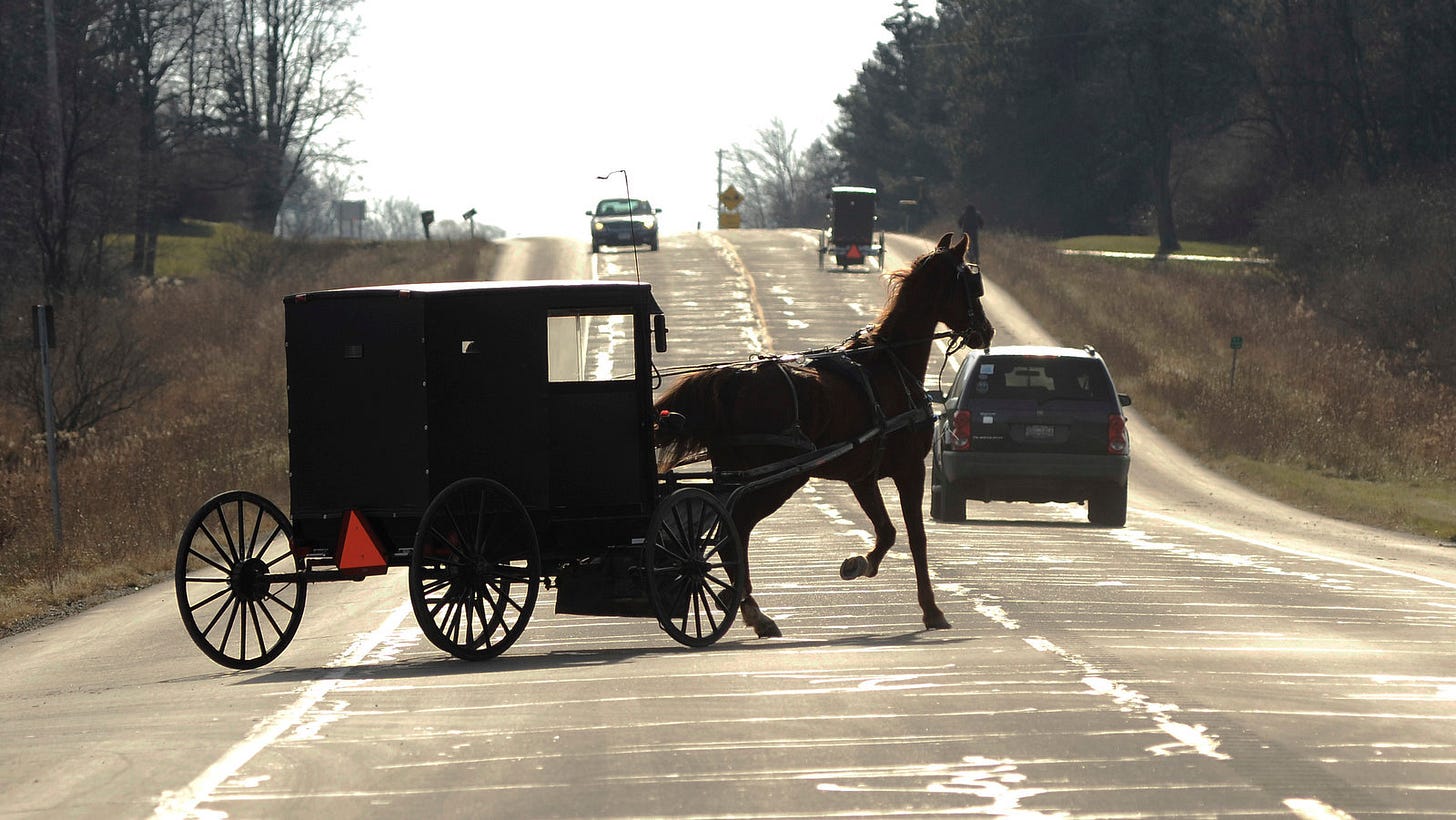
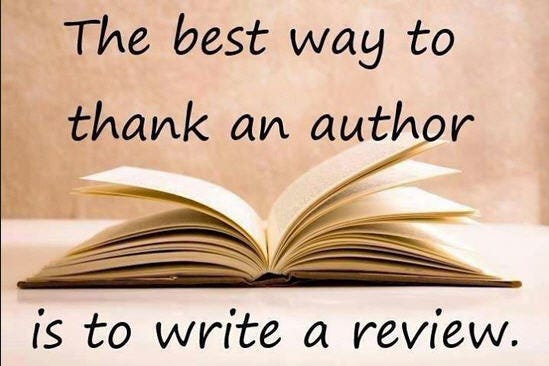
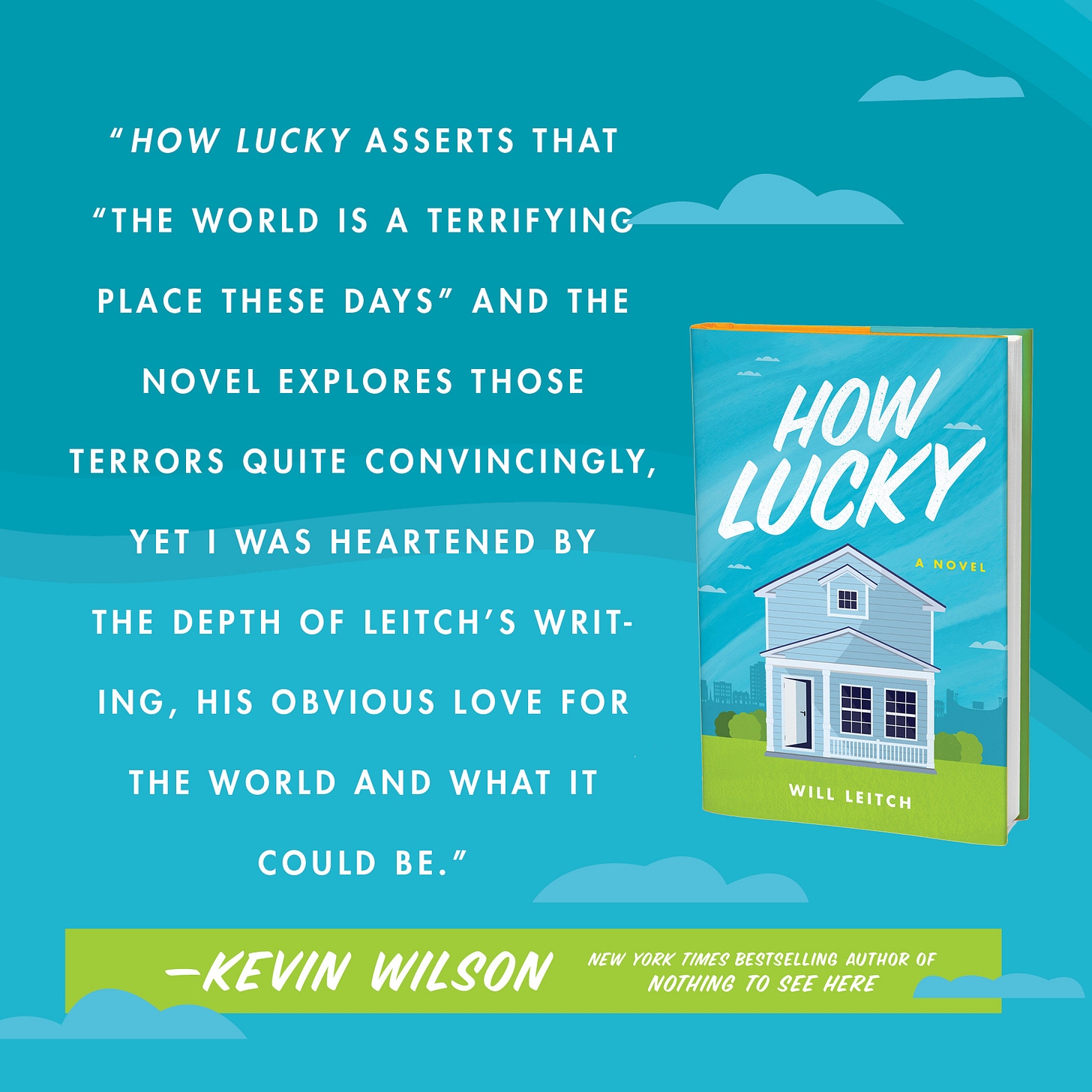
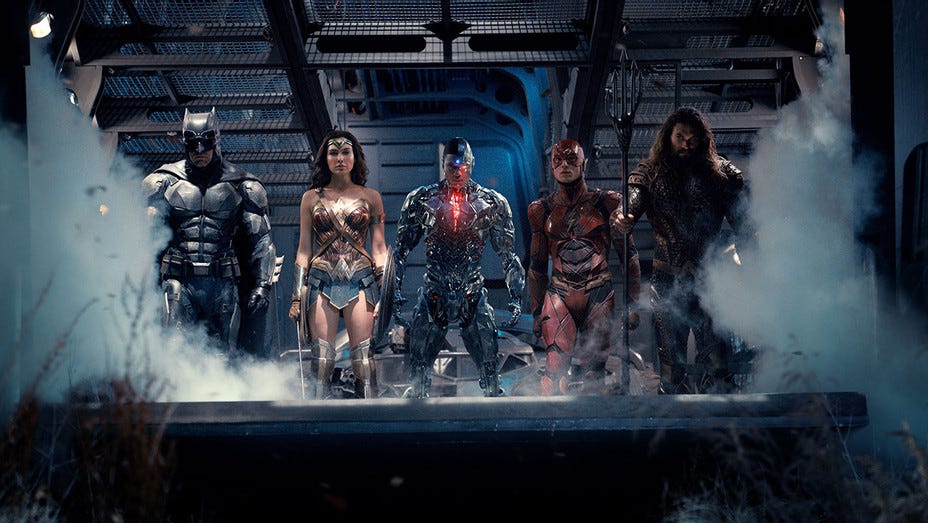
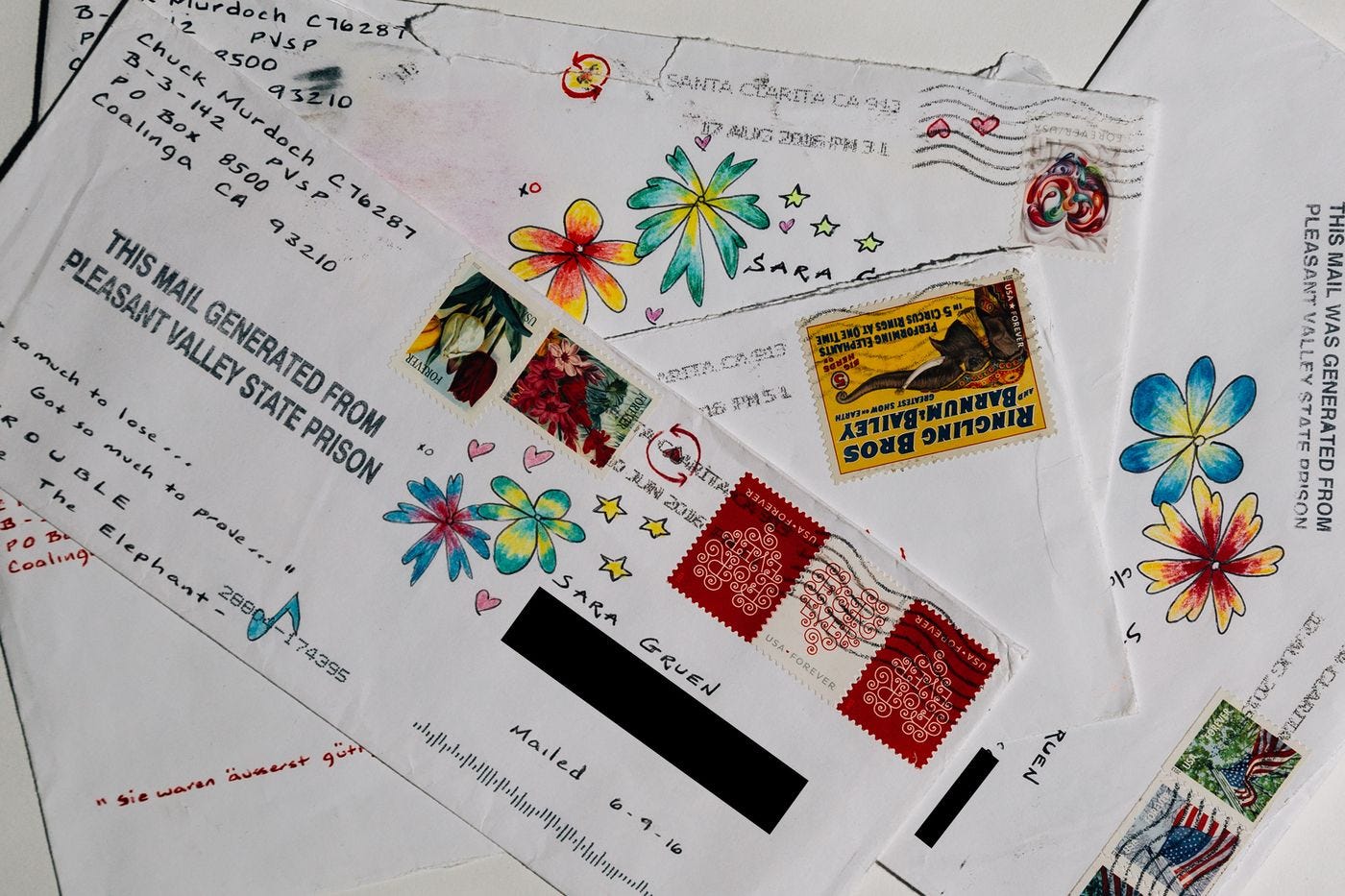
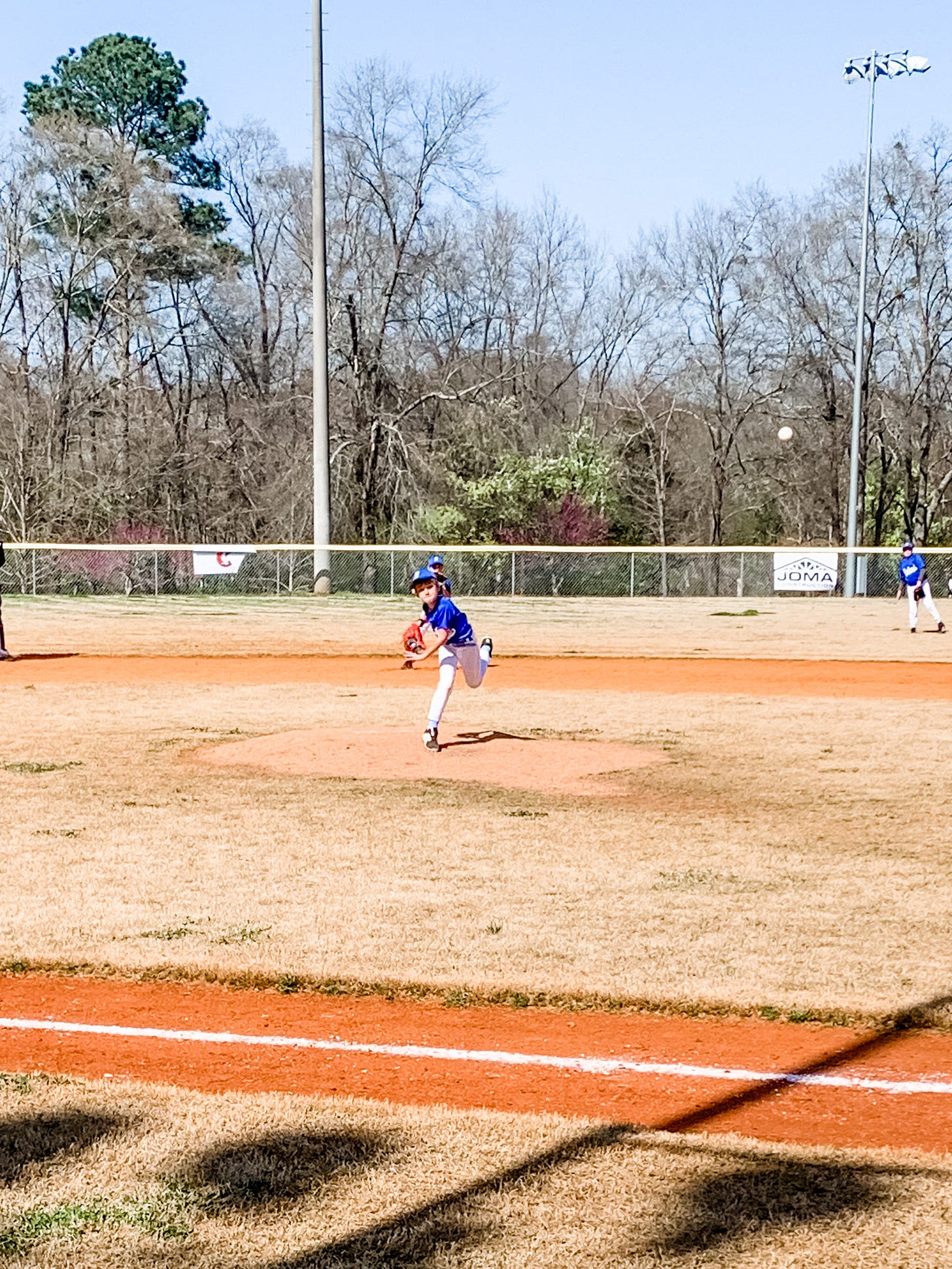
Hey Random Man, loved this news bite- and especially begun with the mild seesaw through childhood and next week...with the taste of what forgiveness is, and understanding stretches to be for good neighbors in a weird world. Nice job. And thank you.
FYI the best thing from this week was your annual podcast with Rany and Joe, BAR NONE!